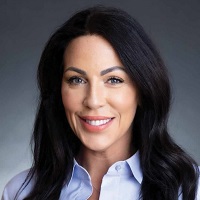Three Gen X Retirement Mistakes for Millennials, Gen Z to Avoid
Many Gen Xers haven’t prioritized saving for retirement and face a crisis as the first generation to retire without substantial support from pension plans.


Profit and prosper with the best of Kiplinger's advice on investing, taxes, retirement, personal finance and much more. Delivered daily. Enter your email in the box and click Sign Me Up.
You are now subscribed
Your newsletter sign-up was successful
Want to add more newsletters?

Delivered daily
Kiplinger Today
Profit and prosper with the best of Kiplinger's advice on investing, taxes, retirement, personal finance and much more delivered daily. Smart money moves start here.

Sent five days a week
Kiplinger A Step Ahead
Get practical help to make better financial decisions in your everyday life, from spending to savings on top deals.

Delivered daily
Kiplinger Closing Bell
Get today's biggest financial and investing headlines delivered to your inbox every day the U.S. stock market is open.

Sent twice a week
Kiplinger Adviser Intel
Financial pros across the country share best practices and fresh tactics to preserve and grow your wealth.

Delivered weekly
Kiplinger Tax Tips
Trim your federal and state tax bills with practical tax-planning and tax-cutting strategies.

Sent twice a week
Kiplinger Retirement Tips
Your twice-a-week guide to planning and enjoying a financially secure and richly rewarding retirement

Sent bimonthly.
Kiplinger Adviser Angle
Insights for advisers, wealth managers and other financial professionals.

Sent twice a week
Kiplinger Investing Weekly
Your twice-a-week roundup of promising stocks, funds, companies and industries you should consider, ones you should avoid, and why.

Sent weekly for six weeks
Kiplinger Invest for Retirement
Your step-by-step six-part series on how to invest for retirement, from devising a successful strategy to exactly which investments to choose.
Dear Millennials,
To steal a phrase from my generation, please “do as we say, not as we do.” If you’re between the ages of 28 and 43, studies suggest you’re not likely prioritizing retirement planning. This isn’t groundbreaking news — the generation before you (Generation X) didn’t prioritize retirement savings when they were your age and, as a result, is now staring down a retirement savings crisis.
Why do I care? I work at an investment firm whose focus is to help people retire with dignity. I’m also a Gen Xer, which has provided me with a front-row seat to the missteps and miscalculations of my generation. With the years shrinking before we head into retirement, it’s my hope that the generations that follow don’t repeat what are becoming our all-too-clear mistakes.
From just $107.88 $24.99 for Kiplinger Personal Finance
Become a smarter, better informed investor. Subscribe from just $107.88 $24.99, plus get up to 4 Special Issues

Sign up for Kiplinger’s Free Newsletters
Profit and prosper with the best of expert advice on investing, taxes, retirement, personal finance and more - straight to your e-mail.
Profit and prosper with the best of expert advice - straight to your e-mail.
By contrast, Gen X will be the first generation to reach retirement without the safety net of corporate pension plans, at a time when people are living longer. Our retirement years will be funded by what we can manage to save, principally in 401(k) accounts, and Social Security. How long these funds last will depend on how much we have saved, and many of us in Gen X are woefully unprepared.
How Gen X retirement accounts stack up
The National Institute on Retirement Security reported the average balance in 2020 for private retirement accounts among working Gen Xers was $129,994. The median account balance was far scarier — $10,000 — and a whopping 40% had zero balances!
Further, according to our Schroders 2023 U.S. Retirement Survey:
- 61% of non-retired Gen Xers are not confident in their ability to achieve a dream retirement.
- 84% of Gen Xers are concerned or terrified by not receiving regular employment paychecks in retirement.
- About half of Gen Xers (49%) are concerned about outliving their assets in retirement.
This is a cautionary tale for Millennials and Generation Z, who will also depend mostly on 401(k) plans for retirement funding. With the benefit of a longer time horizon, these generations have an opportunity to avoid the following mistakes:
- Not planning. Nearly half of all Gen Xers (45%) have not done any retirement planning.
- Not saving enough. Gen X reported on average they will need roughly $1.1 million in savings to retire comfortably, yet they expect to stop working with only about $660,000 saved — a yawning gap of about $450,000.
- Not taking full advantage of the benefits of stocks. Gen X on average reported having more retirement savings allocated to cash (32%) than equities (30%) — a significant opportunity cost for long-term investors.
So not only have we not planned or saved enough, but we’ve also robbed our portfolio of the potential higher returns that can be generated by stocks over several decades. Some lucky Gen Xers can alleviate these problems by aggressively saving more or, if able, working longer.
However, large numbers of Americans report retiring before we plan to, often for reasons outside our control (chiefly poor health, caregiving responsibilities and job changes). And this in and of itself has unexpected costs that speed up drawdowns in retirement accounts.
There’s still time for younger generations
Fortunately, Millennials and Gen Z have many more good earning years remaining to increase savings. A few time-tested strategies for enhancing your retirement readiness include:
- Max out your 401(k) contributions. Contributing the maximum permitted to your workplace retirement account enables you to reduce your income taxes, ensures you get the full employer match (if applicable) and increases the benefits of compounding, which can have a significant positive impact on account balances.
- Save in a health savings account (HSA). As one of the most tax efficient savings options available today, HSAs enable you to contribute pre-tax dollars, pay no taxes on earnings and withdraw the money tax-free now or in retirement to pay for qualified medical expenses.
- Hire an adviser. Working with a financial professional who can help set your goals and establish a path toward reaching them can be a difference maker. Our U.S. Retirement Survey found the average monthly income for retirees with a financial adviser and a plan is $5,075 compared to an average of just $4,170 across all retirees.
Those of us in financial services want to see our clients, along with our friends and neighbors, living as well as they possibly can while working, and in retirement. Yet, with my generation moving into retirement without corporate pension plan support, the data suggests our road will be more treacherous than the one traveled by past generations.
History has a habit of repeating itself, but it doesn’t have to. May the challenges Gen X faces spur the next generations to save more, invest well and better enjoy the fruits of their labors before time (and then money) runs out.
All investments involve risk including the loss of principal. Past performance is not a guide to future results and may not be repeated. Forecast may not be realized. The views shared are those of the author and may not reflect the views of Schroders Plc or any of its affiliates. Schroder Investment Management North America Inc, SEC registered, CRD Number 105820.
Related Content
- 16 Retirement Mistakes You Will Regret Forever
- Five Things I Wish I’d Known Before I Retired
- Retirees’ Anti-Bucket List: 10 Experiences You Don’t Want
- Five Common Retirement Mistakes and How to Avoid Them
- Spending Differences in Boomers vs. Millennials
Profit and prosper with the best of Kiplinger's advice on investing, taxes, retirement, personal finance and much more. Delivered daily. Enter your email in the box and click Sign Me Up.

As Chief Strategy Officer for North America and Head of the US Client Group for Schroders, global asset manager with $923.1B in assets under management, Tiffani’s role involves ensuring alignment of the firm’s key divisions and strategic offerings. As Head of the US Client Group, a dedicated team of 80-plus professionals across sales, business development, product, marketing and client experience, Tiffani’s position is crucial to the growth and development of Schroders’ North American business capabilities and clientele.
-
 Quiz: Do You Know How to Avoid the "Medigap Trap?"
Quiz: Do You Know How to Avoid the "Medigap Trap?"Quiz Test your basic knowledge of the "Medigap Trap" in our quick quiz.
-
 5 Top Tax-Efficient Mutual Funds for Smarter Investing
5 Top Tax-Efficient Mutual Funds for Smarter InvestingMutual funds are many things, but "tax-friendly" usually isn't one of them. These are the exceptions.
-
 AI Sparks Existential Crisis for Software Stocks
AI Sparks Existential Crisis for Software StocksThe Kiplinger Letter Fears that SaaS subscription software could be rendered obsolete by artificial intelligence make investors jittery.
-
 Social Security Break-Even Math Is Helpful, But Don't Let It Dictate When You'll File
Social Security Break-Even Math Is Helpful, But Don't Let It Dictate When You'll FileYour Social Security break-even age tells you how long you'd need to live for delaying to pay off, but shouldn't be the sole basis for deciding when to claim.
-
 I'm an Opportunity Zone Pro: This Is How to Deliver Roth-Like Tax-Free Growth (Without Contribution Limits)
I'm an Opportunity Zone Pro: This Is How to Deliver Roth-Like Tax-Free Growth (Without Contribution Limits)Investors who combine Roth IRAs, the gold standard of tax-free savings, with qualified opportunity funds could enjoy decades of tax-free growth.
-
 One of the Most Powerful Wealth-Building Moves a Woman Can Make: A Midcareer Pivot
One of the Most Powerful Wealth-Building Moves a Woman Can Make: A Midcareer PivotIf it feels like you can't sustain what you're doing for the next 20 years, it's time for an honest look at what's draining you and what energizes you.
-
 I'm a Wealth Adviser Obsessed With Mahjong: Here Are 8 Ways It Can Teach Us How to Manage Our Money
I'm a Wealth Adviser Obsessed With Mahjong: Here Are 8 Ways It Can Teach Us How to Manage Our MoneyThis increasingly popular Chinese game can teach us not only how to help manage our money but also how important it is to connect with other people.
-
 Looking for a Financial Book That Won't Put Your Young Adult to Sleep? This One Makes 'Cents'
Looking for a Financial Book That Won't Put Your Young Adult to Sleep? This One Makes 'Cents'"Wealth Your Way" by Cosmo DeStefano offers a highly accessible guide for young adults and their parents on building wealth through simple, consistent habits.
-
 Global Uncertainty Has Investors Running Scared: This Is How Advisers Can Reassure Them
Global Uncertainty Has Investors Running Scared: This Is How Advisers Can Reassure ThemHow can advisers reassure clients nervous about their plans in an increasingly complex and rapidly changing world? This conversational framework provides the key.
-
 I'm a Real Estate Investing Pro: This Is How to Use 1031 Exchanges to Scale Up Your Real Estate Empire
I'm a Real Estate Investing Pro: This Is How to Use 1031 Exchanges to Scale Up Your Real Estate EmpireSmall rental properties can be excellent investments, but you can use 1031 exchanges to transition to commercial real estate for bigger wealth-building.
-
 Should You Jump on the Roth Conversion Bandwagon? A Financial Adviser Weighs In
Should You Jump on the Roth Conversion Bandwagon? A Financial Adviser Weighs InRoth conversions are all the rage, but what works well for one household can cause financial strain for another. This is what you should consider before moving ahead.